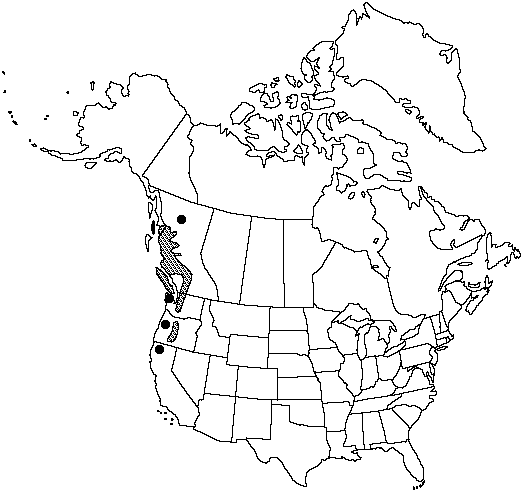Abies amabilis
Pinet. Woburn. 125, plate 44. 1839.
Trees to 75m; trunk to 2.6m diam.; crown spirelike, with age becoming flat-topped, cylindric. Bark gray, thin, smooth, with age breaking into scaly plates. Branches diverging from trunk at right angles, short, stiff; twigs mostly opposite, darker brown abaxially, light-brown adaxially, pubescence tan. Buds hidden by leaves or exposed, brown, globose, small, resinous (at least apically), apex rounded; basal scales short, broad, triangular, densely pubescent, usually not resinous, margins entire, apex sharp-pointed. Leaves (0.7–) 1–2.5cm × 1–3mm, mostly 2-ranked, flexible, ± concealing the adaxial surface of the twigs (especially in mid to upper crown), some leaves forwardly directed, others usually longer and spreading horizontally, proximal portion ± straight; cross-section flat, prominently grooved adaxially; odor pungent; abaxial surface with 5–6 stomatal rows on each side of midrib; adaxial surface dark, lustrous green, lacking stomates; apex prominently notched; resin canals small, near margins and abaxial epidermal layer. Pollen cones at pollination red, becoming reddish yellow. Seed-cones cylindric, 8–10 (–13) × 3.5–5cm, purple, sessile, apex round to nipple-shaped; scales ca. 2 × 2cm, pubescent; bracts included. Seeds 10–12 × 4mm, body tan; wing about as long as body, rose to tan; cotyledons 4–7.
Habitat: Moist, coastal coniferous forests
Elevation: 0–2000m
Distribution

B.C., Alaska, Calif., Oreg., Wash.
Discussion
Selected References
None.